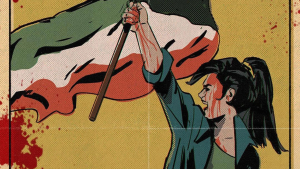
Black History Month: Holding the Fort
Holding the Fort
by Mark Cassidy
In April 1802, African slave soldiers took over the Fort Shirley garrison (on the Cabrits peninsula of Dominica) for three days in protest over conditions there and for fear of being sent to work in the canefields. Their action resulted in all slave soldiers being made free in 1807 – the first act of emancipation in the British Empire.
White feet climb from the bay,
taking a tourist trail to explore this outpost.
In well-groomed lawn the officers’ quarters
stand, restored to Georgian elegance.
Memory is a plaque:
On this spot the mutiny of the 8th
West India Regiment broke out.
Under a mango’s shade, there’s more to learn.
***
Cane bills were the trigger.
A broad iron blade, with hooked tip heavy
on long handle, to strip and lift the stems.
Familiar enough – like erratic food
and clothing – yet unforeseen,
as the swindling of due allowances had been.
Cane bills. Plantation’s badge:
handed out, like shame, for clearing swamp of bush.
***
Did the Colonial Office weigh up the risk
of putting arms in reach,
as manpower short, they bought a regiment?
For Redcoats fell to more than yellow jack.
Where they hanged the rebels, history doesn’t say.
We imagine them dangling
from Fort Shirley’s ramparts, overlooking
black sands and blue, contested Caribbean.
***
Black hands built these dark walls:
carried the cut boulders, hauled cannon
to the heart of a volcano, long dead.
The garrison track heads inland, stumbles
on empty magazines, barracks half-swallowed
by forest. Windows choked with Strangler fig.
Imperial footing undermined
by spreading Bloodwood root.
By the end of the 18th century, the British government calculated that a garrison of 20,000 soldiers was needed to defend its Caribbean possessions. Yet in 1793 the entire British army totalled fewer than 40,000 men. Moreover, disease (malaria and yellow fever) was taking its toll of soldiers stationed in the region.
To solve the problem of manpower for defence, the Colonial government launched a plan for a Black West Indian Regiment, since it was considered that Africans would better survive the climate.





